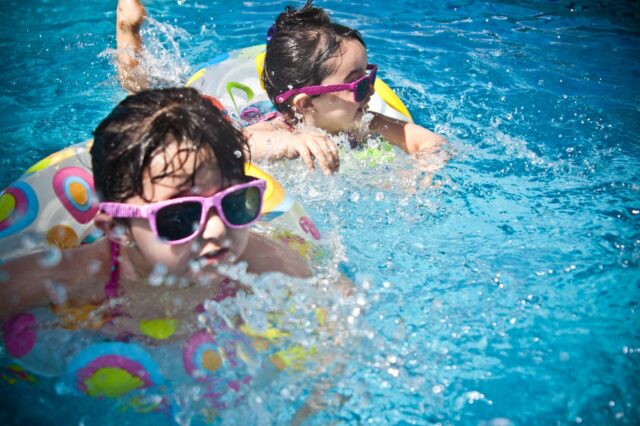Water Safety in the Summer

Summer in Florida usually means high temperatures. To beat the Florida heat, many of us will enjoy excursions to the pool, lake, beach or natural springs with our families. Even though these water activities are exciting and fun, it's important to recognize that injuries and emergencies are extremely common during the summer season because of the increase in water activities.
Among children under the age of 14, drowning is the second-leading cause of unintentional injury-related death, according to the American Red Cross. Fortunately, most water injuries and emergencies are avoidable.
To help keep kids safe this summer, we're providing some information to educate parents on drowning and sharing tips to help prevent these accidents.
Silent killer
Drowning isn’t always obvious. That's why they call it a silent killer.
When an airway is covered or filled with water, kids can’t call out. Within 20 to 60 seconds of being under water, they can be drowning.
In movies, you can see people splashing around when they are trying to portray drowning, but that isn’t reality. There's usually not much splashing, which can make drowning much less obvious.
Look out for the up-and-down motion to indicate drowning.
Long-term effects of drowning
Drowning can decrease or stop the flow of oxygen to the brain. This can cause a multitude of health issues that can affect a child’s life.
If oxygen is not able to get to the brain, the ability to function normally afterward is limited.
In addition, intubation can scar the lungs. However, children who are rescued quickly will usually not need to be intubated.
CPR can save a life
If a child is rescued from drowning and is unresponsive, CPR is a way to increase their chance of survival. It's imperative that CPR is started right away.
As a bystander, don’t wait to check for a pulse. Start CPR as soon as possible and call 911.
Those with children or those who take care of children should be CPR certified. The UF Health CPR Training Center offers CPR training courses for all who are interested.
The American Red Cross also offers printable step-by-step guidelines for performing child and baby CPR.
Stay vigilant
It's important to be attentive when monitoring children around water activities.
Here’s a list of advice for parents and guardians to keep their kids safe:
- Put the phones away
- Refrain from alcohol
- Assign one adult to monitor each child
- Parents should be within arm’s reach of children under 5 years old
The priority is watching the children and keeping them safe.
